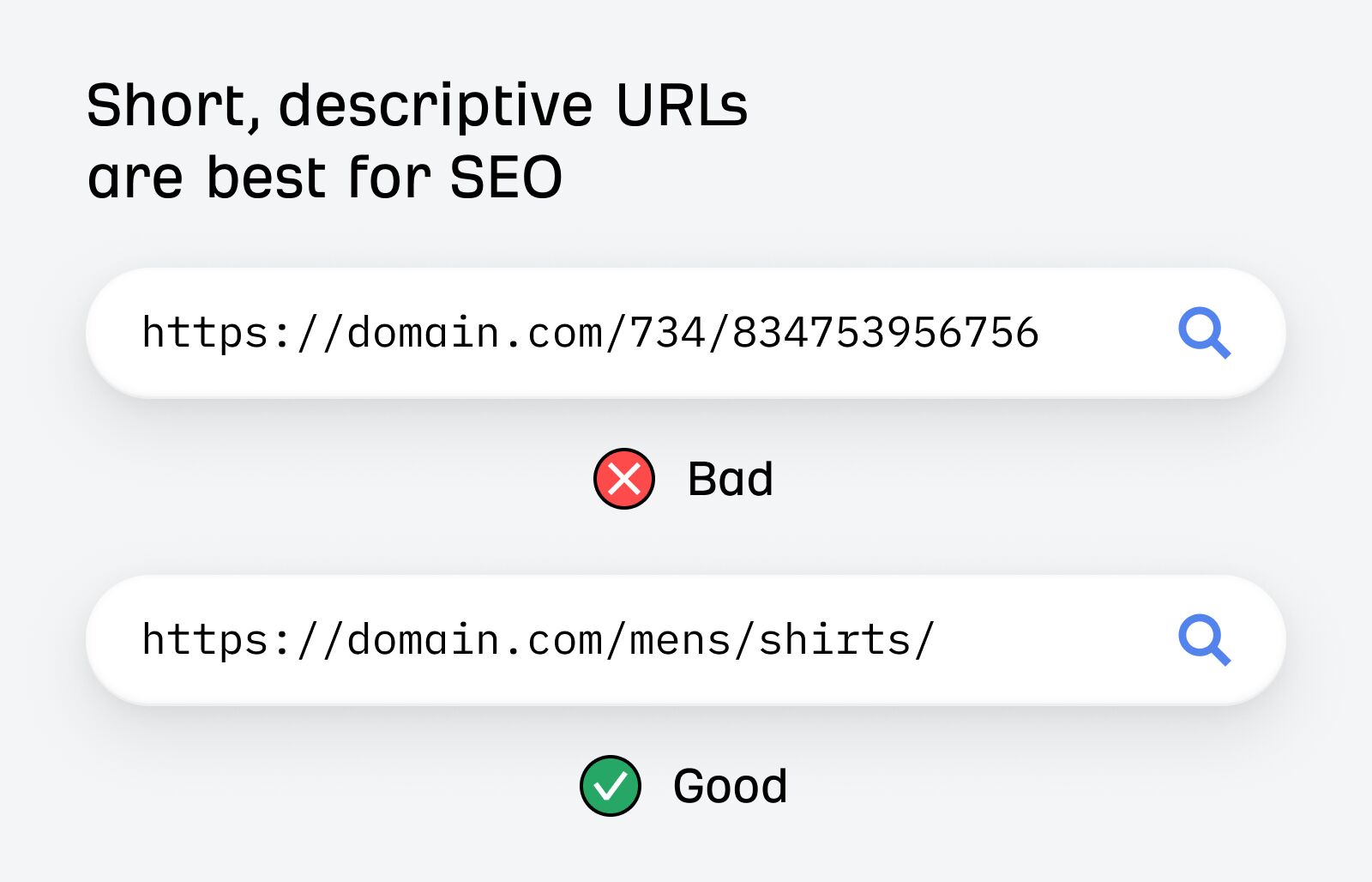It’s helpful to use a short, descriptive URL structure highlighting the core topic of the page. As Google explains in its SEO starter guide:
“Parts of the URL can be displayed in search results as breadcrumbs, so users can also use the URLs to understand whether a result will be useful for them.”

We recommend using your target keyword as the URL slug, like we do throughout the Ahrefs blog:
| Page Title | Target Keyword | URL Slug |
|---|---|---|
| SEO Agency Software (My Tried and Tested Tools) | seo agency software | /blog/seo-agency-software/ |
| Franchise SEO: Local and National Growth Strategies for Franchises | franchise seo | /blog/franchise-seo/ |
| SEO Trends 2024: Separating Fact From Fiction | seo trends | /blog/seo-trends/ |
| How to Promote Your Blog (There Are Only Three Ways) | how to promote your blog | /blog/how-to-promote-your-blog/ |
Adding your keyword to your URL won’t magically boost search performance, but it will build the reader’s confidence that your page is relevant to their query.
(And make your life easier when you come to update your old content and can’t remember what the target keyword was.)

When choosing your URL, it’s a good idea to:
- Avoid including dates (unless they’re essential). /best-seo-tools-2024 makes sense this year, but it will send the wrong message to searchers if you want to update your article next year.
- Don’t worry about function words. Words like for, and, or to can be safely left out of your URL.
- Make URLs simple and readable. domain.com/article/keyword-research-guide is better than domain.com/2024/03/21/article-keyword-research.
Leave a Reply